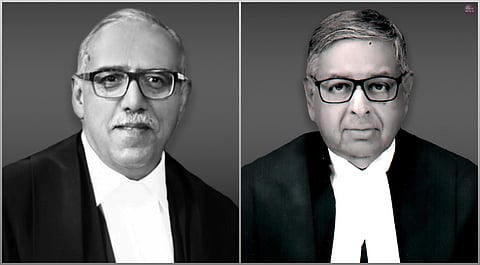
- News
- Columns
- Interviews
- Law Firms
- Apprentice Lawyer
- Legal Jobs
- हिंदी
- ಕನ್ನಡ

The Supreme Court yesterday ruled that Portuguese Civil Code, 1867 as applicable in the State of Goa, shall govern the rights of succession and inheritance even in respect of properties of a Goan domicile situated outside Goa, anywhere in India.